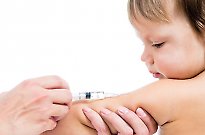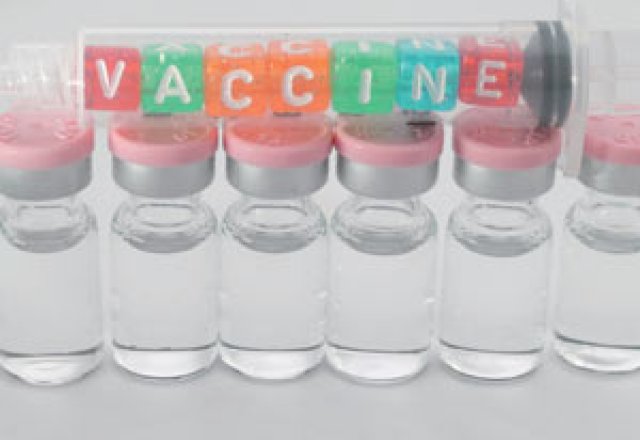
Health savior or toxic invader? The vaccination debate

Willow Aliento explores the highly emotional vaccination debate.
Is it possible to rid the world of measles, whooping cough and mumps by mass vaccination programs? Or can vaccination cause more health problems than cures?
Not many of us like injections. They hurt, even vicariously when our baby is given the multiple jabs prescribed by the standard Australian immunisation schedule.
The standard patient information sheet lists possible side effects ranging from mild discomfort to death. If we go ahead, it is because we believe it is the best protection from diseases like HPV (Human Papillomavirus), diphtheria, tetanus, influenza (seasonal or Swine), measles, hepatitis A and B, chicken pox and meningococcal C. But what if it isn’t? Many question vaccination, concerned about the way the viral and bacterial agents are produced or the safety of other ingredients. There are doubts about safety testing and sometimes reluctant acknowledgment of adverse reactions.
The recent Commonwealth Government and Australian Medical Association recommendations against seasonal flu vaccinations for under-fives – following a spate of post-vaccination toddler and infant deaths and numerous cases of convulsions and febrile seizures – came only after parents insisted on being heard.
Advocates for vaccination, cite an obvious reduction in notified cases of the diseases that we have as a nation been vaccinating against for decades – polio, diphtheria, tetanus and Whooping cough (Pertussis). The smallpox vaccination program worldwide was so successful that the disease has virtually vanished from developed nations.
THE HISTORY OF VACCINATION
The theory behind vaccination was developed in Europe in the 1800s, pioneered by English doctor, Edward Jenner who used a small dose of the cowpox virus to protect against it in 1796. The basic principle is that the introduction of a small amount of a virus or germ via injection empowers the body’s immune system to recognise and eradicate the antagonist quickly if it ever appears again. Vaccination is the process and immunisation is the period of protection from that infection due to the presence of appropriate antibodies circulating in the blood.
However, vaccination is not 100 per cent successful. In the 2009 NSW North Coast Whooping cough outbreak, more than half of the children hospitalised with the illness were fully vaccinated. Nor is vaccination effective for life. The only way to acquire lifetime immunity from a disease is to actually catch it and recover. Maintaining vaccine-induced immunity from many diseases such as tetanus or Rubella requires regular booster shots.
Dr Janelle Wheat blends an allopathic medicine background with natural therapies in her Riverina practice. Her experience as a healer and a parent has taught her that we need to do our homework on vaccination and take appropriate steps to ensure healthy, responsive immune systems.
“There is a failure rate of vaccinations. Just because someone has been vaccinated does not mean they will avoid that disease,” says Janelle.
“People still need to take precautions and maintain their health and wellbeing, especially if they are around carriers of a disease or their immune system is low. They (vaccines) do play a role, but we need to be careful of how we come around to making the decision to vaccinate. The Immunisation schedule seems an overwhelming number of injections. As a parent, you need to find as much reputable information as possible, including the medical opinion. There is a lot of information about what’s in each vaccination, the success rates and adverse events on-line, you can look up the medical literature and sit down with the data.”
To minimise adverse reactions and maximise effectiveness, Janelle suggests immune support such as vitamin C and Echinacea plus a few days of a whole-food diet, with supplementary fresh fruit and vegetable juices. Afterwards, she recommends fish oil for inflammation, arnica compresses at the injection site and to manage fevers - stripping down and giving cool baths with chamomile or oats. Liver supporting herbs such as rosemary, Scisandra and St Mary’s Thistle will help the body detox from the adjuvants and preservatives.
She stressed that parents should make sure they are fully informed about the vaccination and their child’s overall health. In addition, parents need to take basic precautions like observing proper contagion periods if a child is sick and ideally learning how to manage common diseases. She also suggests alerting health professionals of any side effects. “If someone experiences an adverse reaction – report it, both to the medical establishment and the manufacturer. This helps people down the track. We have to work with the medical profession and be reporting adverse events and medicos have to be respectful of our concerns.”
Herbalist Leah Searle from Lismore’s Traditional Medicinals described the NSW North Coast, which has one of the state’s lowest rates of vaccination, as being like a big scientific experiment, which shows people can be healthy without so many vaccinations. In her view, prevention – including hygiene, good diet and looking after the immune system, is the major factor in preventing many diseases. Her recommendations for preventing and treating viral illnesses such as flu also include the use of essential oils such as eucalyptus, thyme, lavender, pine, mint, peppermint, lemon myrtle and ravensara; also cinnamon tea, star anise, ginger, garlic and orange juice. Chicken soup is also proven as a remedy.
Immune system boosters for children and adults include Echinacea, cats claw and elderberry and for acute infection, Ando-Graphis, Zinc and Vitamin C are all valuable supplements.
“With children’s immune systems, it is better to wait a year before vaccinating, because their immune systems are not yet fully developed. There should not be so many vaccinations so early,” she said.
“I disagree with the whole scare tactics [around vaccination]; it’s about people really informing themselves and seeing the risks, you have to read both sides. There are all the mums who saw their kids change overnight (after vaccination). You have got to be sure of what you are doing – there is no going back from vaccination.”
WARNING TO PARENTS
There are serious issues for parents who choose not to vaccinate according to the schedule. No childcare centre, preschool or school will enrol a child who has not been vaccinated according to the schedule, unless parents can produce a GP-signed Conscientious Objector Form. Parents without a CO form can be reported to Child Protection agencies for negligence if they take their child into a hospital for treatment (including emergencies), or a Community Health clinic.
These forms are available from GPs, but you must give informed reasons for objecting and even then, some GPs may not sign them. The form must be lodged with Medicare and a copy kept by the parent and produced for medical visits and enrolments.
Unvaccinated children are excluded from childcare, preschool and school for set periods when another student is reported sick with a vaccination-preventable illness.
Selective vaccination can be problematic – the vaccinations may be expensive and many single dose (one illness only) vaccines have been discontinued.
Note: The only general medical exemption for vaccination is a diagnosed immune-comprising condition.


